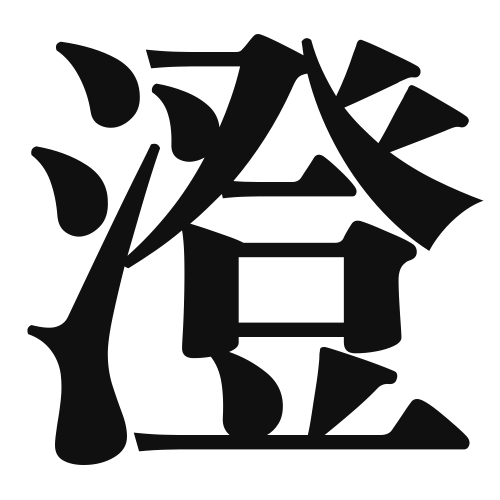1. Overview of Meaning
The kanji “澄” (pronounced “sumi”) means “clear” or “pure.” It is often used to describe something that is transparent, clean, or free from impurities, such as water or air.
2. Formation and Radical
Formation of the Kanji: The kanji “澄” is a phonetic-ideographic character (形声文字). It combines the water radical (氵) with the phonetic component “青,” which suggests clarity and purity.
Radical: The radical of “澄” is the water radical (氵), indicating its association with liquids and clarity.
3. Examples of Usage
Common Words and Phrases:
- 澄んだ水 (sunda mizu) – clear water
- 澄んだ空 (sunda sora) – clear sky
Example Sentence in Daily Conversation:
今日は澄んだ空を見上げて、気持ちが良いです。
(Today, I look up at the clear sky, and it feels good.)
4. Synonyms and Antonyms
Similar Kanji:
- 清 (sei) – also means “clear” or “pure,” but often refers to cleanliness or purity in a moral or ethical sense.
- 透明 (toumei) – means “transparent,” often used in contexts like glass or liquids.
Antonyms:
- 濁 (daku) – means “turbid” or “cloudy,” referring to something that is not clear or pure.
5. Cultural and Historical Background
Relation to Japanese Culture: The concept of clarity and purity is significant in Japanese culture, often associated with nature and spirituality. Clean water is revered in Shinto beliefs, symbolizing purity.
Proverbs and Idioms:
澄んだ心 (sunda kokoro) – a clear heart, meaning a pure and honest mind.
